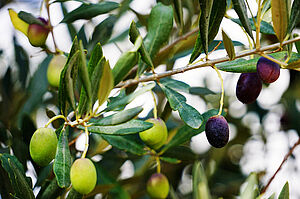Responding to the increasing number of disease outbreaks in Europe on economically valuable crops such as olive and almond trees, the BIOVEXO project explores innovative biopesticides targeting the plant pathogenic Xylella bacterium. AIT as scientific coordinator together with RTDS Group as project coordinator have recently launched the BIOVEXO website.
Research on finding effective new biopesticides to reduce Xylella disease pressure on olive and almond orchards started right during the covid-19 crisis and has continued throughout summer.
BIOVEXO aims to save the cultural heritage of olive cultivation in Europe and at the same time strives to prevent social and societal damage from abandoned farming. Coordinated by the Vienna-based RTDS Group and with Stéphane Compant from AIT as scientific coordinator, the project receives funding from the Bio Based Industries Joint Undertaking supported by the European Union’s Horizon 2020 research and innovation programme. The website outlines BIOVEXO’s innovative pest control strategies pursued in a five year-research plan, besides introducing research institutes, industry and farmers participating in the project.
Recently, several new candidate biopesticides were applied on olive orchards in Mallorca, Spain, and Apulia, Italy, as curative and preventive approaches to fighting Xylella fastidiosa. Following small-scale on-field validation and improved formulation of new compounds, the BIOVEXO project will then upscale production of best-performing biopesticides and elucidate their exact mode of action. Finally, BIOVEXO’s control strategies will be validated in a real-life integrated pest management approach set at large pilot scale in Europe’s two major Xylella outbreak regions.
More detailed information can be found at biovexo.eu
Biovexo press release (EN)
Stéphane Compant (AIT), scientific coordinator & project video:



